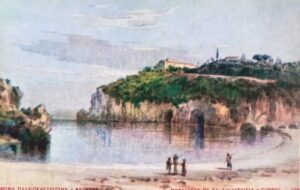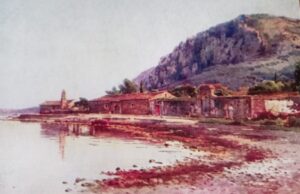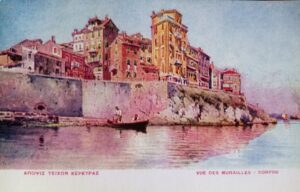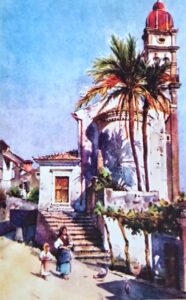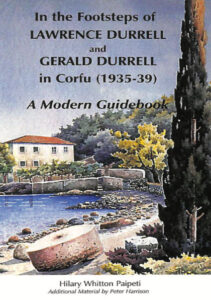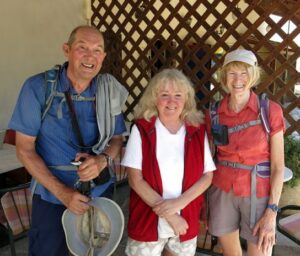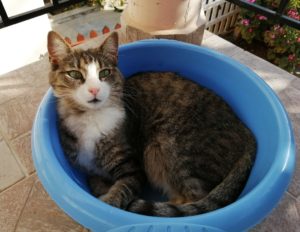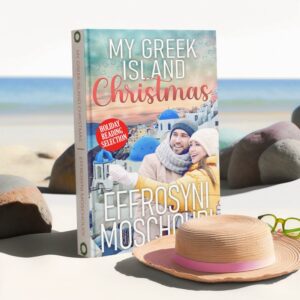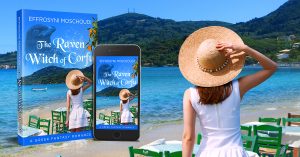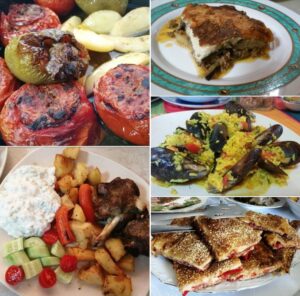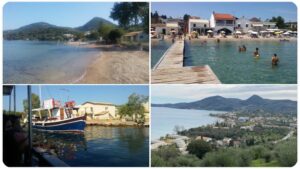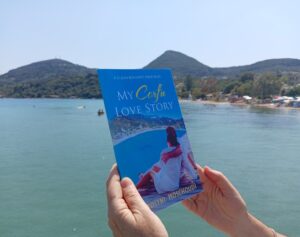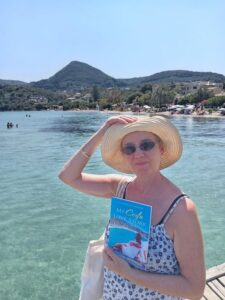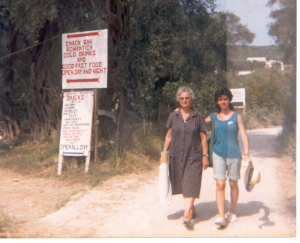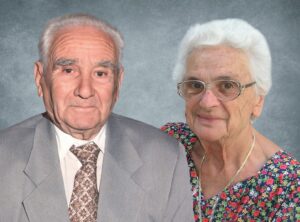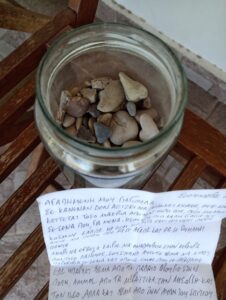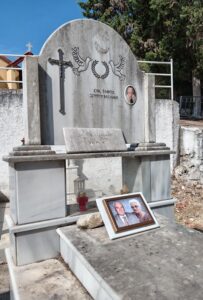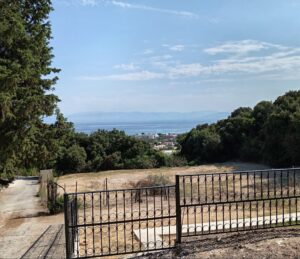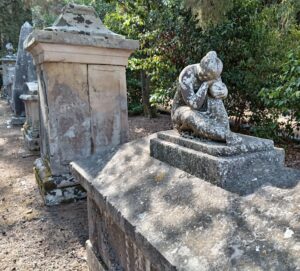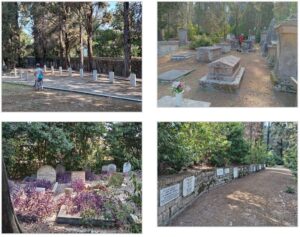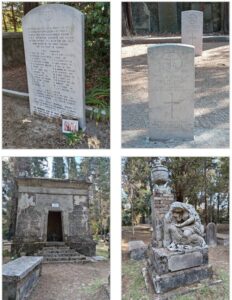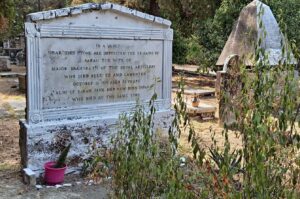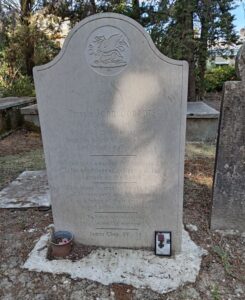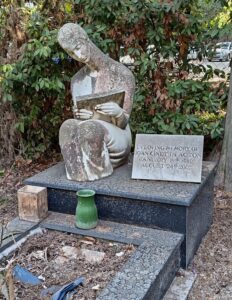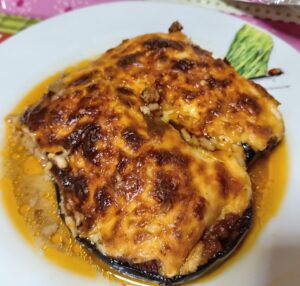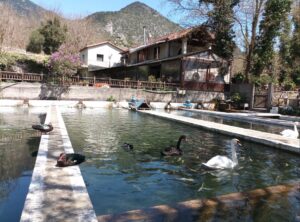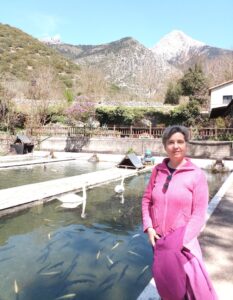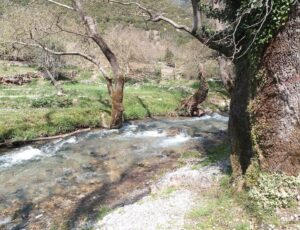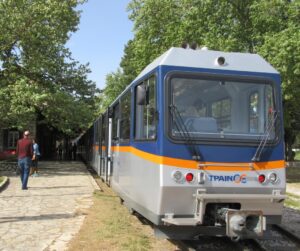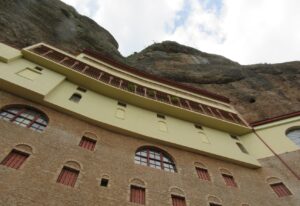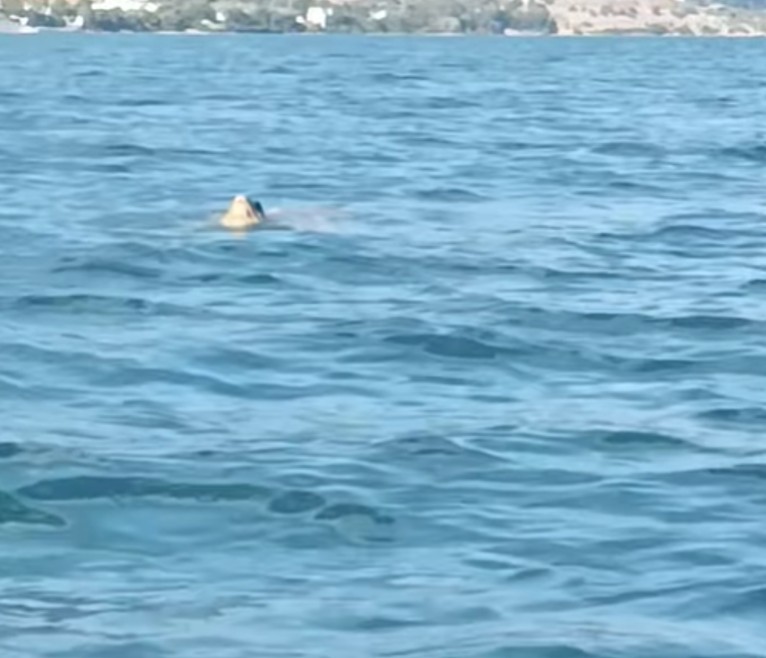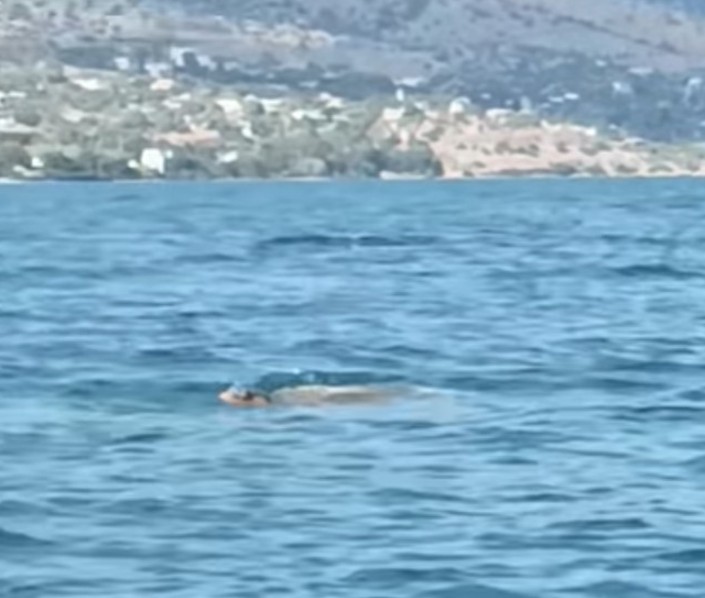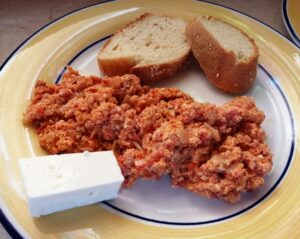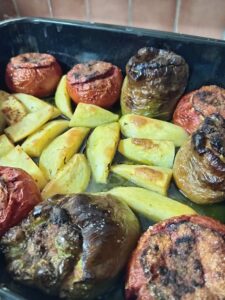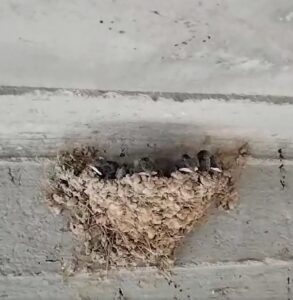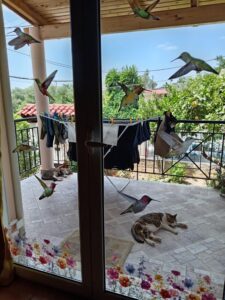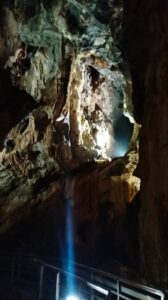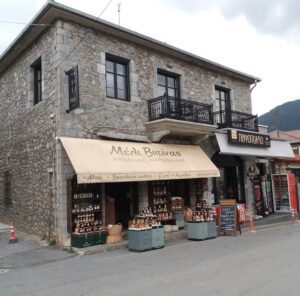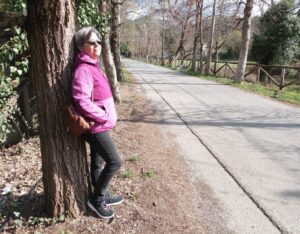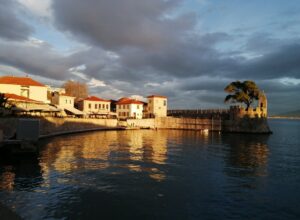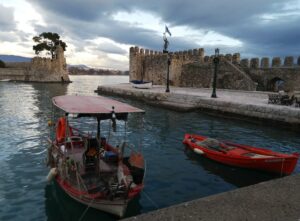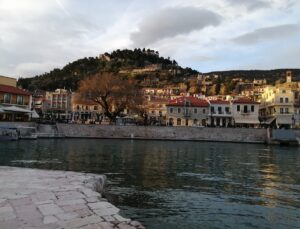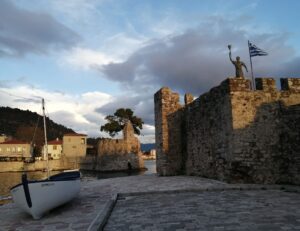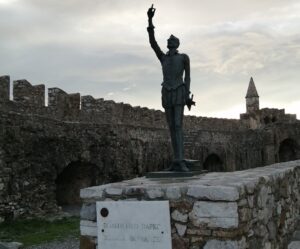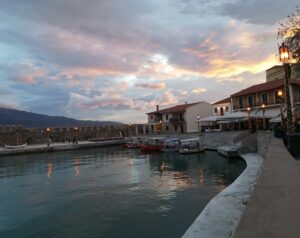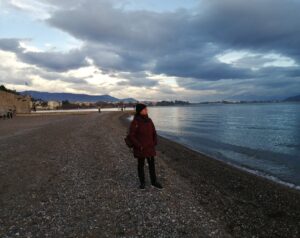Today, I am thrilled to share an original article by a gifted and highly knowledgeable author and journalist, Hilary Whitton Paipeti, who I am honored to call a friend.
Also, let me ask you. Do you enjoy Corfu walks and hikes? Scroll to the bottom of this article for an unmissable tip!
Hilary gave me the most beautiful gift when we met this summer – a bunch of reprints of old Corfu postcards by legendary artist, George Giallinas. It is a gift I will cherish forever.
I have chosen a couple to share with you here, and I will let Hilary tell you in her own words why these postcards and this artist are so special.
For one, I am enchanted by what I see in these paintings – a Corfu that is long gone since the emergence of organised tourism that irreversibly changed village life and the look of many of the island’s iconic locations.
Without further ado, enjoy Hilary’s article:
Postcards from Corfu by Angelos Giallinas
By Hilary Whitton Paipeti
The best postcards of Corfu ever produced were reproductions of Angelos Giallinas’s gorgeous watercolours. They were printed in Corfu by the Aspiotis-ELKA printworks, which operated in a large building, now a school, located behind the Ionian University on Kapodistrias Street. The postcards featured mainly village scenes, and are now collectors items.
Angelos Giallinas (1857-1939) is generally regarded as Corfu’s foremost watercolour artist, and his paintings, immensely popular during his lifetime, command high prices. Transparent and full of light, they capture the charm of Corfu. Much imitated (though never matched), his work remains popular up to the present day. Giallinas travelled extensively in Greece and Europe, painting and exhibiting as he went. Among his most famous works are his views of Athens and its classical monuments, and a series featuring Constantinople; but his Corfiot landscapes remain the best loved. And it was these that he made into postcards.
Their publication, which date from the decade of 1910 and onwards, was a clever commercial move which netted the artist a good income. It was the heyday of the Angleterre Hotel (Bella Venezia), where Europe’s aristocracy comprised the main clientele. The hotel was located above the Orpheas Cinema on Zambellis Street, next to the existing hotel of the same name (it was destroyed by German bombs on the night of 13 September 1943). The Aspiotis-ELKA printworks was just over the road (and the artist’s town house faces the Esplanade nearby), so the Giallinas cards would not have far to travel to the individual who commissioned them!
At the time, these cards carried the ‘wish you were here’ message out to Europe. How many people visited Corfu after receiving a card featuring one of Giallinas’s lovely views? Vlaherena with Pontikonissi behind… Paleokastritsa’s bays and hinterland from the Monastery… The Palace of Saint Michael and Saint George… a vista taking in Karoussades and the vale behind… rocks at Paleokastritsa… the Mourayia bathed in morning sunlight… the Peristyle of the Achillion with its statues… the Church of Agia Barbara in Potamos… view from the Pelekas summit… View of Pelekas village… the twin peaks of Pantokrator from the sea… the Old Fortress at dawn… Benitses (my own favourite)…and many more.
Giallinas almost destroyed the art of watercolour painting in Corfu. His paintings were so gorgeous (and popular) that every subsequent watercolorist tried to copy him. Problem was, Giallinas painted light, and the later artists couldn’t, however hard they tried. The trend led to a marked lack of unoriginality as no-one in this medium dared to try anything new.
Due to the printing process, the postcards really don’t capture the wonderful light of the originals.
Another artist whose work was reproduced on postcards was Vikentios Bocatsiambis (1856 – 1932: an almost exact contemporary of Giallinas). Also printed by the Aspiotis printworks, these cards appear to date from the 1940s and 50s, after the artist’s death.
In contrast to the landscapes of Giallinas’s cards, they feature portraits of peasant ladies in costume, and serve as a record of the island’s lovely national dress. At the time when Bocatsiambis was painting, the costumes varied substantially from village to village; now, on show at touristic ‘Greek Nights’, it is almost completely restricted to the Gastouri wedding outfit.
Hilary is pictured at the centre in this photo. Image source: https://walkswithtsb.blogspot.com/2018/06/no-blogs-for-couple-of-weeks-as-we-have.html
Hilary Whitton Paipeti, a resident of Corfu, writes for the FREE Corfiot e-newspaper, The Agiot.
She also enjoys taking tourists on group walks and hikes around the beautiful countryside of the island. You can visit Hilary’s sites, Corfu Walks and The Corfu Trail, for more information.
To check out her e-book, In the Footsteps of Lawrence Durrell and Gerald Durrell in Corfu, as well as her forthcoming publication, visit this page.
THANK YOU FOR READING! MAKE SURE TO DOWNLOAD MY 3 FREE BOOKS BELOW 🙂 YOU WILL RECEIVE THEM INSTANTLY WITH YOUR SUBSCRIPTION TO MY FUTURE POSTS.
Here is my girl, Sissi, doing one of her favorite things – which is to jump into the empty tub as soon as I’m done putting the laundry on the line. She makes me smile with her naughtiness, mind you. Talking about smiling… Make sure to check out my latest newsletter! Every issue is chockful with unmissable FREE books for various tastes. You’ll be smiling no end, guaranteed!
GO HERE AND ENJOY!
Sharing is caring! Here’s a ready tweet for you to spread some love:
Interested in FREE books, Greek travel and easy recipes? Here's a blog you will love! #Greek #blogger #writer Share on X
3 FREE books for you! Sign up below to receive them instantly!
New! Clean Christmas romance. Two broken hearts. One magical holiday. A Santorini farm where anything can happen.
Check it out on Amazon Read a FREE sample!

